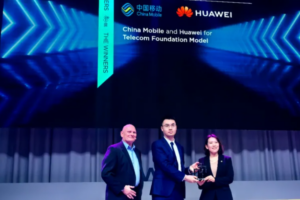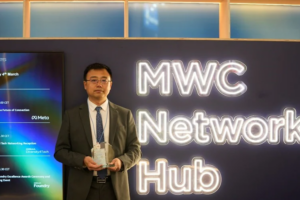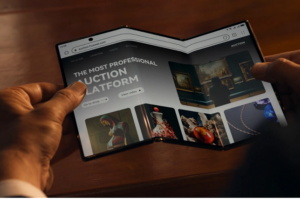As the Middle East builds cities from the ground up, governments are seeking creative ways to improve services and quality of life. This digital transformation uses technology for better transportation, law enforcement, waste management and workplace systems. During GITEX Technology Week 2019, industry leaders discussed ways of tapping into the power of big data, IoT, artificial intelligence, cloud infrastructure and higher computing capabilities.
“The future has arrived in the Middle East as we see governments across the region pouring investment into Smart City projects,” said Ehab Kanary, vice president of Enterprise for the Middle East and Africa, CommScope. “Our policymakers and the private sector have an opportunity to stimulate development given the digitization of industries like hospitality, healthcare, retail and education. CommScope is dedicated to laying the groundwork for innovation by providing connectivity for smart mobility, smart buildings, smart campuses and smart homes.”
In a new era of IT, the network underpins everything
“Our students are putting significant emphasis on their learning environment and productivity,” said Rob Irving, director of the Information Technology Center at the University of Sharjah. “The digitally native generation across the Middle East consider themselves forward-thinking and want to be attending universities that are investing in innovation. For campuses with a high volume of students, the provision of Wi-Fi should be a baseline requirement. CommScope’s wireless technology helps our students and staff improve the entire classroom and learning experience.”
“Some of the world’s most prominent five-star hotels have tapped into Ruckus Networks technology to enhance the experience for business users,” said Sami Mansi, regional managing director for Middle East, Africa and Turkey at InterTouch. “Seamless connectivity and the best network infrastructure is a baseline requirement for luxury hotels that cater to business guests while managing thousands of connections during peak periods.”
CommScope highlighted its latest solutions that build the foundation for smart city infrastructure during GITEX Technology Week 2019:
Smart Campus: The connected campus as a smart city proving ground. Hardly confined to higher education, connected campuses include medical and technology parks as well as corporate campuses and airports that are miniature smart cities. Regardless of size or scope, every connected (or smart) campus relies on most of the same network infrastructure elements needed for the smart city. New Wi-Fi 6 certified technology can be rolled out in ultra-dense environments such as stadiums, hotels, convention centers and schools.
Smart Mobility: Network connectivity is the core fundamental of smart cities. With the help of smart poles, network operators can enhance densification in the network. Outdoor small cell densification is an enabler of LTE capacity today and 5G deployments tomorrow. CommScope offers an entire outdoor small cell solution including antennas, RF combiners, WDM, power, fiber and wireless backhaul, and aesthetically pleasing concealment solutions.
Smart Buildings: Most mobile connections take place in-building and this will only increase with smart buildings and 5G. CommScope’s Era and OneCell innovations continue to enhance deployment economics and create a path to 5G. Hotels, schools, retailers and healthcare providers are also benefiting from Ruckus Networks technologies, no matter how tough the environment.
Smart Homes: Today, there may be anywhere from 30-50 devices in the ultra-connected home. Technologies like HomeAssure™ deliver the next era of connectivity both to the home as Wi-Fi becomes the fourth domestic utility. CommScope believes the smart media device is a new home device category: set-top, speaker, visual smart assistant, IoT hub, video & teleconference and remote control—all in one.
Smart cities will be built on fiber. As governments around the world invigorate broadband with investment in digital infrastructure, the number of 5G connections is expected to exceed one billion by 2025. The next few years are critical to building networks that will meet the demand. In anticipation of this need, CommScope is also showcasing its FISTTM Modular Splice Closure that assists network operators with building a fiber foundation for future networks.







